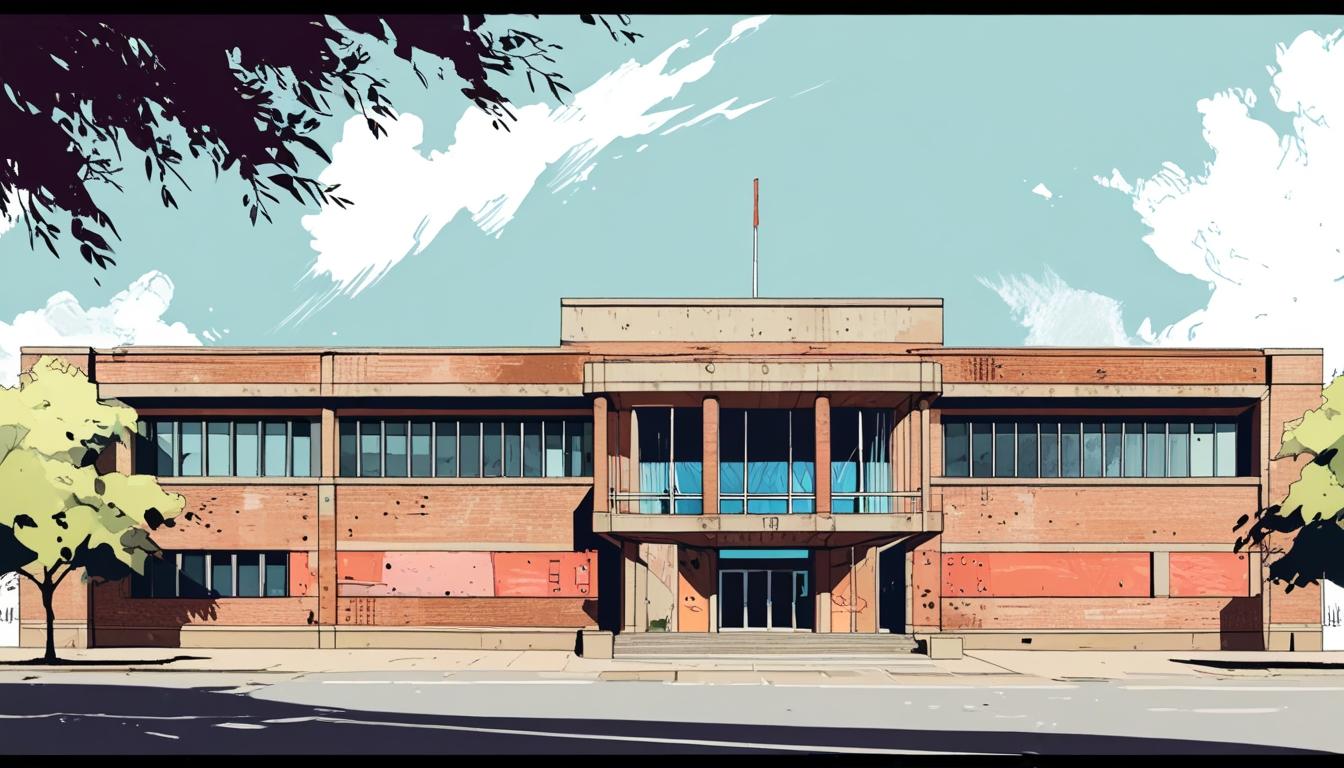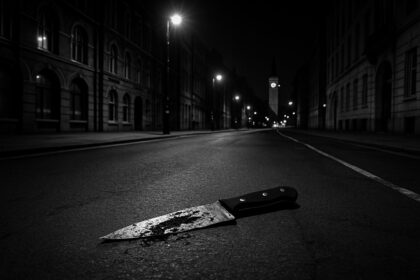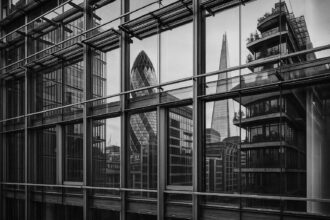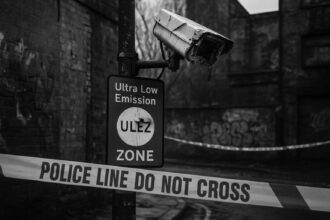Derby City Council’s controversial plan to demolish the Assembly Rooms and create a £60 million community hub in Market Place has divided opinions, with heritage advocates warning of cultural loss and critics questioning the project’s financial viability ahead of a public consultation.
Plans to demolish Derby’s Assembly Rooms and replace it with a new community facility have sparked significant debate among local residents, heritage advocates, and city officials. The ambitious project, dubbed “Derby MADE,” aims to transform the Market Place into a vibrant space that would cater to a variety of community needs. However, leading figures in conservation have described the proposal as “pie in the sky,” citing concerns about the potential loss of heritage and the lack of a clear business plan.
Last week, Derby City Council announced a public consultation regarding the Derby MADE initiative. This comes almost a year after an artist’s impression of the project was withdrawn following revelations that the council lacked permission to proceed with the demolition of the Assembly Rooms, which has been closed since a fire incident in March 2014.
The new proposal envisions a multifunctional building featuring spaces for families, co-working areas, a library, exhibition spaces, and even a rooftop bar, alongside retail and office units. This facility marks the first stage of an overall redevelopment plan for the Market Place, which also includes a hotel and further office developments.
Criticism of the plan has been vocal. Ashley Waterhouse, chairman of Derby Civic Society, expressed disappointment that the council is opting to replace a structure that he believes could be repurposed for community use. He remarked, “It has been stated it will cost £6 million to demolish a building only worth £3 million to start with.” Waterhouse noted that refurbishing the Assembly Rooms could be achieved at a fraction of the cost of the proposed new build, with estimates for replacement reaching £60 million or more. He raised pointed questions about the practicality of a new facility in the city centre, suggesting that community centres ought to be located within local neighbourhoods.
Echoing these sentiments, Alan Grimadell, president of Derby Civic Society, criticized the developers’ description of the proposed building as the “city’s living room.” He argued that such claims are not backed by real evidence or plans, stating, “The council wants to knock the building down and doesn’t seem to have any concrete evidence of what is really going to replace it.”
Historically, the Assembly Rooms have faced various proposals for renewal since their closure. The building, constructed in 1977, is representative of Brutalist architecture, yet a series of plans—including refurbishments proposed by both Labour and Conservative administrations—have met with financial and logistical hurdles. In 2021, it was decided that demolition would not occur until an alternative plan had been approved. Delays in the project’s progression have prompted concerns among residents about the future viability of the Market Place.
Social media commentary reflects a mixed sentiment regarding the proposed changes. Some users expressed scepticism about the timeline of the project, with remarks like, “I can’t wait to see that come into fruition in the year 2097.” Others acknowledged the challenges of refurbishing the existing building and expressed support for the new design, suggesting it could better serve community needs.
Councillor Nadine Peatfield, leader of the council and cabinet member for city centre regeneration, highlighted that the public consultation is intended to gather feedback on the Derby MADE project. According to Peatfield, the consultation will commence on May 7, featuring drop-in sessions at the City Lab in the Derbion shopping centre, where members of the public can view plans and provide input.
Graham Lambert, managing director of VINCI UK Developments, commented on the council’s vision for the project, stating, “We are only too aware of our responsibility in transforming the site of the former Assembly Rooms, with something that is equally iconic, but also of equal or greater relevance to Derby’s citizens.” He welcomed public feedback to help shape the project’s future.
With the scheduled consultation just around the corner, stakeholders are keenly awaiting further developments regarding Derby MADE and its implications for the future of the Market Place and the legacy of the Assembly Rooms.
Source: Noah Wire Services
- https://www.bbc.co.uk/news/articles/c23kdg0xj0ko – This article reports on the postponement of the demolition of Derby’s Assembly Rooms, highlighting the council’s decision to delay the demolition to allow for consecutive construction work, addressing concerns about the site remaining vacant.
- https://www.bbc.co.uk/news/uk-england-derbyshire-68562759 – This piece discusses Derby City Council’s plans to demolish the Assembly Rooms and replace it with a new ‘cultural heart’ for the city, featuring a multifunctional building with leisure, commercial, and community facilities.
- https://www.derbyworld.co.uk/news/derby-assembly-rooms-demolition-absolutely-on-track-despite-no-timeframe-for-new-offices-and-four-star-hotel-4926748 – This article details the council’s progress on the demolition of the Assembly Rooms, despite not providing a specific timeframe for the new offices and four-star hotel, and mentions the involvement of VINCI Developments and ION Developments in the redevelopment.
- https://www.derbytelegraph.co.uk/news/derby-news/assembly-rooms-demolition-market-place-9162247 – This report covers the council’s announcement of the demolition of the Assembly Rooms to make way for a new cultural, commercial, and creative public space, including plans for a multi-storey office and meeting space, as well as restaurant and commercial spaces.
- https://www.architectsjournal.co.uk/news/carbon-cost-of-demolishing-derby-assembly-rooms-laid-bare – This article presents calculations showing the significant carbon emissions associated with demolishing and rebuilding the Assembly Rooms, highlighting the environmental impact of such a decision.
- https://www.itv.com/news/central/2023-11-09/curtains-for-new-theatre-in-derby-after-council-cancels-construction – This news piece reports on the cancellation of the construction of a new purpose-built ‘learning theatre’ in Derby due to economic challenges, with the £20 million ‘levelling up’ funding now being divided between redevelopment for existing venues.
- https://news.google.com/rss/articles/CBMilgFBVV95cUxQSGk1bXN0N3R0eFRGd25XZlFuR05zTGtEVkZEUG9OQ2lJcFJPZTd6UldHT3p4ZDN2VWtfMUtBQy13MWlNSF9DRjZDUjZNeUlkeldFd0xzTGdfUTU3QjdrZjJ1NFZvcmIyMEdUVTZCVDFrS05RQXZRYk9rN2lrQ0pEZEhnTkVWU01vNUVQQ01SaFM1Q3FPZlE?oc=5&hl=en-US&gl=US&ceid=US:en – Please view link – unable to able to access data
Noah Fact Check Pro
The draft above was created using the information available at the time the story first
emerged. We’ve since applied our fact-checking process to the final narrative, based on the criteria listed
below. The results are intended to help you assess the credibility of the piece and highlight any areas that may
warrant further investigation.
Freshness check
Score:
8
Notes:
The narrative refers to recent developments and a scheduled public consultation, suggesting it is current. However, historical context dates back to 2014 and 2021, indicating ongoing issues rather than entirely new news.
Quotes check
Score:
6
Notes:
Quotes from local figures, such as Ashley Waterhouse and Alan Grimadell, appear original within this context but cannot be verified as the first use without further evidence.
Source reliability
Score:
5
Notes:
The reliability of the narrative is moderate since it does not originate from a well-known reputable publication like the Financial Times or BBC but seems to provide balanced views representing various stakeholders.
Plausability check
Score:
7
Notes:
The claims about the Derby MADE project and community reactions are plausible given local development contexts. However, the lack of detailed business plans raises uncertainties about the project’s viability.
Overall assessment
Verdict (FAIL, OPEN, PASS): OPEN
Confidence (LOW, MEDIUM, HIGH): MEDIUM
Summary:
The narrative appears relatively fresh with ongoing developments, but its source is not a major publication. Quotes are likely original but unverified. While plausible, the project faces uncertainties due to a lack of concrete plans.













